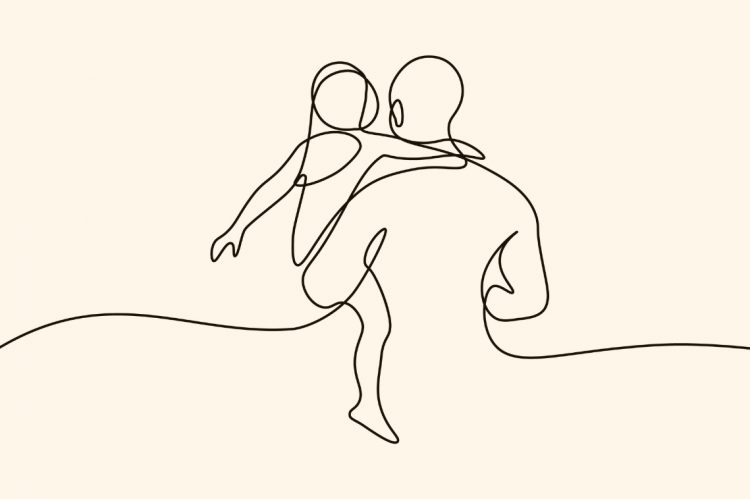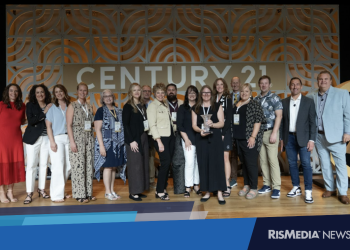With all the traveling happening this week, I didn’t have a chance to recognize one leader who has been a source of endless inspiration to me: my father, Pappy.
Paul Frank Blefari (1925-2021) not only taught me how to be a better leader but also how to be a better brother, son, father and human being.
Whenever I’m asked the question: “Who had the biggest impact on you growing up?” I always say my dad. He was—and still is—my hero.
My dad fought in Patton’s Third Army and received two purple hearts for his service, the second of which was handed to him personally by Generals Eisenhower and Patton when they were visiting the wounded. How awesome of a selfie would that have been?
During the sales convention this year, I dedicated my keynote speech to my father, sharing lessons he taught me about leadership—lessons in humility, accountability, bravery, positivity, kindness—with a crowd of several thousand attendees. I hope those messages inspire them as much as they’ve inspired me.
Before my dad passed away, I would always make time in my schedule each week for my parents. Every Sunday, we’d get in the car and drive for three hours, we called it the “three hour tour” (Gilligan’s Island). We never had a plan; we’d just drive. My parents would be in a hurry for most of the week, and the only place they really hurried to was the doctor’s office. Sunday was our time to have no agenda except to drive.
Before it became too difficult for him, I would take my dad golfing with JT and his dad in the morning and then we’d have a barbecue and watch the U.S. Open. I’d also get my dad and my father-in-law U.S. Open shirts every year. I really wish I could have gotten him one this year from the tournament in L.A. He would’ve loved that.
Another recent news event he would’ve really connected with is the true story of the four Indigenous children who spent 40 harrowing days lost in the Amazon rainforest after a plane crashed. As NPR reported, the children—ages 13, 9, 4 and 11 months—are members of the Huitoto Indigenous group. They’d been flying in a single-engine Cessna with their mother, fleeing turmoil in their village and on the way to visit their father.
NPR reports that on May 1, the Cessna had engine trouble and disappeared. When the children were eventually rescued, the landscape of their location was so treacherous, a helicopter had to hover overhead while the children were hoisted aboard.
After the rescue, NPR says, the children explained that they stayed alive by eating fruit and a box of food they’d found. The baby was fed a mix of water and yucca flower from a bag they discovered on the plane. According to MSN, the children’s mother actually survived the crash, living for four days before she ultimately succumbed to her injuries. Before she passed, she told them that they must get out of there. And they did.
This story of extraordinary survival reminds me of another story from my dad’s time serving in the Third Army, fighting valiantly across France. My dad and a radio operator were moving in the woods through deep snow when they came across a German unit with a machine gun nest. The machine gun was an MG 22, arguably the most deadly and effective machine gun the Germans had. Dad and the radio operator returned fire and got close to the nest. As dad told me and my friend Pat Cardwell over lunch one day, “We lobbed a few grenades up there and that was that.”
Well yes, but there’s more to the story. While they were running through the snow, trudging through this frozen river bed with the radio operator carrying his big, heavy radio, the operator kept falling because of the weight of the radio on his back and because the Germans were shooting at them.
My dad kept pulling up the radio operator as he stumbled while taking fire as they ran in a serpentine pattern through a snowy riverbed.
He’d fall, my dad would lift him up. He’d fall, my dad would lift him up. But the Germans were relentless in their chase.
The radio operator was shot in the back. But the bullet hit his radio and saved his life. My dad and the radio operator took the radio and destroyed it so the Germans couldn’t use it, and then made it back to their unit.
So, what’s the message? Of course, children courageously fighting to stay alive deep in the Amazon rainforest and two Army soldiers fighting Germans in France during WWII are completely different things, but at heart, these stories are both about survival. They’re both about embracing that now-famous phrase, “No person left behind.”
It’s a lesson my dad taught me and a lesson that I now carry on my leadership journey. It’s also a lesson to be learned from those incredibly brave children who kept each other alive through extraordinary circumstances to honor their family and save their brothers’ and sisters’ lives. I really do think Pappy would’ve loved to hear about that—humans helping one another with kindness, compassion and love.
This article is adapted from Blefari’s weekly, company-wide “Thoughts on Leadership” column from HomeServices of America.












